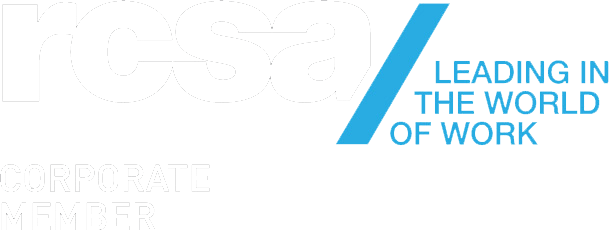Have you been thinking about what a career outside of the Big 4 may look like?
The labour market is the best it's been in over 50 years and with skill shortages in demand it will be no surprise that candidates from within the Big 4 are highly sought after at present. If you are being tapped on the shoulder for new opportunities, now is a great time to consider a move outside of the profession.
Making the transition from the Big 4 to the commercial sector can be difficult. You may feel like you are starting over, or that you are not ready yet. But with the right planning and preparation, you can make the move successfully and start your career in commercial accounting. In this blog post, we will discuss tips on making the move from the Big 4. We will talk about what to do before you make the move, and what to expect in your new job!
Firstly, think about why you want to move?
Working at EY, Deloitte, KPMG, or EY means you've worked for one of the world's largest professional service firms but the diversity of commercial business is tremendous — from other large global companies to SME's, listed, privately held, and private equity-backed businesses across a variety of industries — it might be daunting to know which way to go.
The Big 4 is a fantastic training ground for Accountants to learn the ropes of the accounting profession. However, many Accountants eventually want to move on to the commercial sector for a variety of reasons - better work/life balance, less travel, more interesting work, broader career opportunities, financial improvement, not keen to pursue the partner path etc...In a recent article in the Australian Financial Review, reports indicate that more than three-quarters of Australia’s largest accounting firms are having trouble recruiting and retaining staff, with qualified auditors continuing to be in particular short supply around the country.
Next, do your research
Whatever your reasons are, and before you make the transition from the Big 4 to the commercial sector, it is important to do your research. You may have been fortunate to have had exposure to a wide variety of industries in your client base but think about what kind of company you want to work for, and what type of position you are looking for.
Try to learn as much as you can about different businesses. It's always advisable to pursue industries you have a personal interest in and that align with your career aspirations. For example, you may have a keen interest in healthcare, property, or consumer goods to name a few or you may have had some exposure to these already from your time in the Big 4.
Think about sectors that have solid growth prospects and where your skills would be in demand.
If you can, speak to others who have made the move before you, or reach out to clients to hear about their experience from the other side. You can also network by attending industry events, connecting with people on LinkedIn, friends, and family. It's also definitely valuable to connect with trusted recruiters who specialise in placing qualified accounting professionals into commerce and industry. When you are networking, be sure to be clear about what you are looking for. You may want to use your strong foundation in audit to move into a group reporting or Financial Accounting role or perhaps you came from Deals or Transaction Services and want to pursue a role with a more analytical and strategic focus. This is not set in stone but some roles will be better aligned to your big 4 skills than others when making that first move.
When is the right time?
There is no hard and fast rule about when the right time is to leave the profession to continue your career in the commercial sector. Candidates from all levels can and do make the move from Associate to Partner out but typically most will make a move somewhere between 2-4 years. There are certain milestones that people typically like to make before making the jump - obtaining your accounting qualification, leading bigger & more complex engagements, or managing a small team for example.
Focus on your career goals
It is likely your career goals will change over the years but when you are looking to make your first move, you should be thinking at least a couple of moves ahead. Usually, start with a 5-year plan and then reassess as you go. Think about the role you want to move into now as well as the role after that.
Once you have secured a job in the commercial sector, there are a few things you should keep in mind.
- Get to know the business - be curious, investigate the key drivers of the business, understand their position in the market, current market conditions and challenges, and competitors.
- Build relationships internally - this is a critical part of any role - get to know key decision-makers, managers, and stakeholders. Ask questions and understand their priorities and challenges. Don't underestimate the power of face-to-face communication - it's still the best way to build relationships.
- Be commercial - start thinking about things from a business perspective - revenue, costs, expenses, margins, market share etc. in order to add value from an accounting perspective, you need to have your business hat on.
- Adapt your communication style - be aware that the language you use in the profession may not be well understood or appreciated in a commercial setting so try to find ways to simplify it, especially when dealing with non-financial stakeholders.
- Don't forget your technical skills - you may not need to use them as much in your new role but they are still valuable so keep them up to date.
- Think about processes - assess existing processes for efficiency and risk and always look for ways to improve them. Getting used to new systems is always a good opportunity to offer suggestions for refinements.
- Be patient - you may not have the same level of responsibility as you did in your previous role but be patient, work hard, meet deadlines and deliver quality outcomes. It may take a little time to settle in but you will get there. If you can, seek out a mentor or someone who can offer you advice and be a sounding board for you.
Finally, if you have left on positive terms and remained in contact it stands to reason that the door would always be open if you decide that commercial accounting isn't for you after all. However, if you find that a career in the commercial sector is the right one for you, then congrats - you've made a great decision and will no doubt have an extremely interesting and varied career ahead.
Thanks for reading, we hope you found this blog post helpful! If you have any questions or would like to share your own tips on making the transition from the Big 4 to the commercial sector, please leave a comment below.
Alternatively, if you would like to connect with one of our Accounting & Finance specialists to discuss your next career move please reach out to Sarah Nualsaengsy for a confidential discussion.





